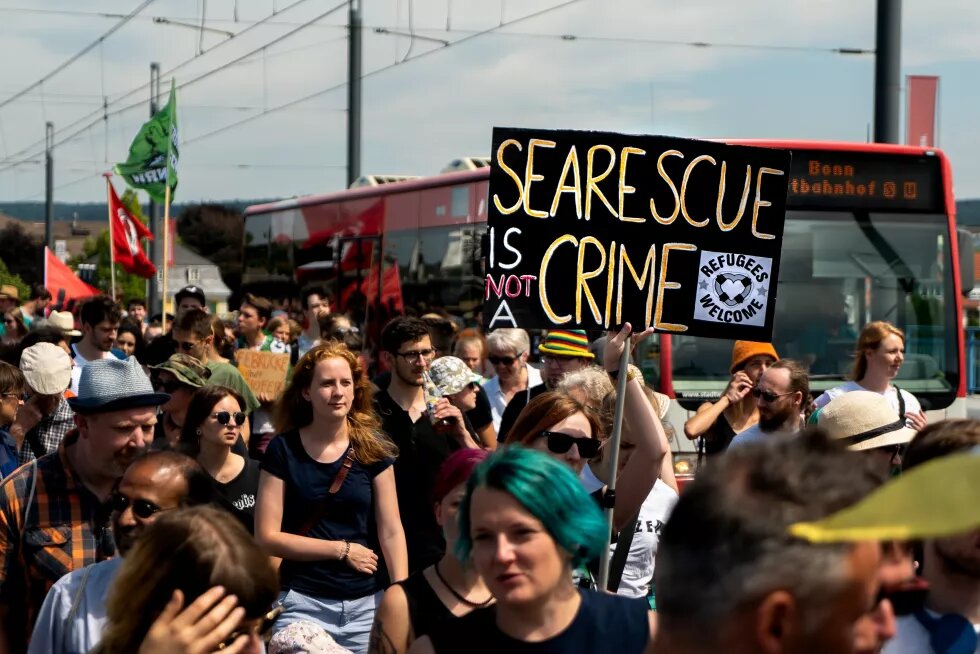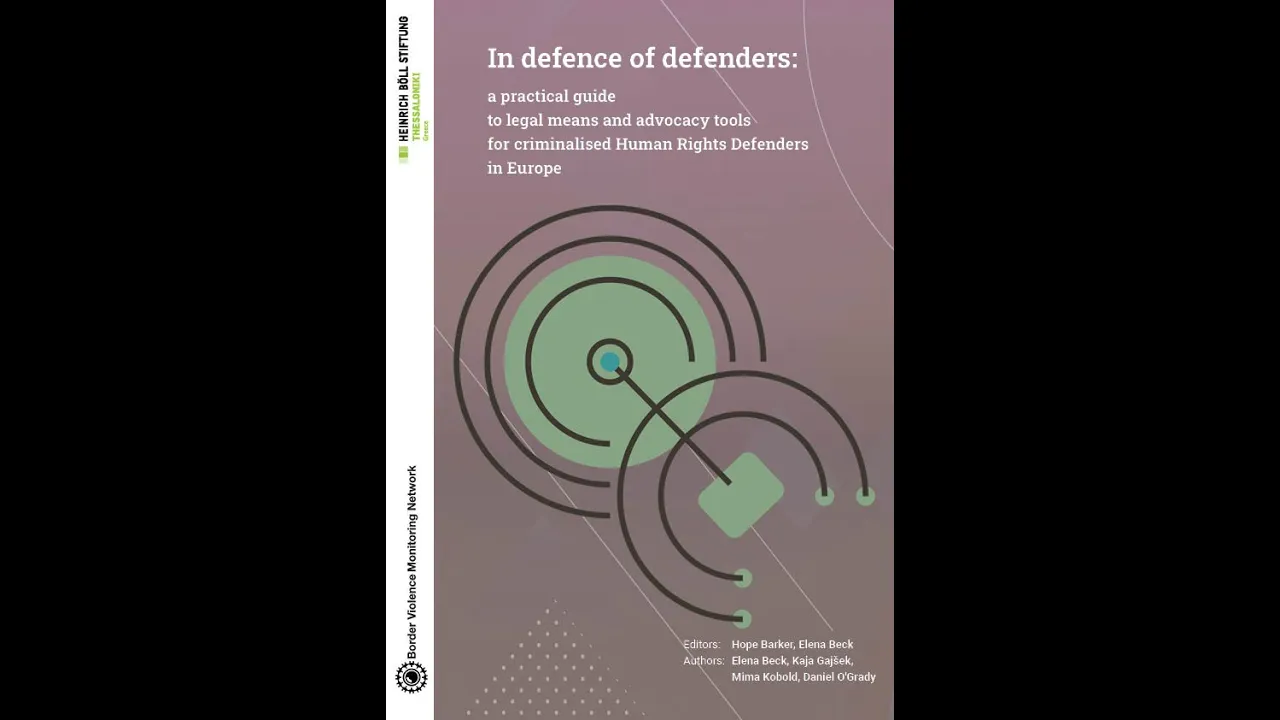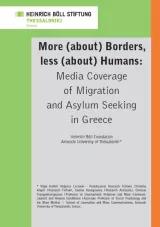The presentation of our latest publication In defence of defenders: A practical guide to legal means and advocacy tools for criminalised Human Rights Defenders in Europe was followed by a panel discussion on the criminalisation of solidarity aiming to discuss among policy-makers, researchers, journalists and practitioners the existing challenges, as well as to discuss potential solutions.

The discussion focused on migration and migrants’ rights defenders because they are often the most severely targeted including aid workers, lawyers, journalists and people on the move (POM) themselves in the context of a generally shrinking civil society space[i].
“I found that while many Human Rights Defenders in Greece can operate with a large degree of security, the treatment of those who defend the rights of migrants, refugees and asylum seekers is often shocking” mentioned Mary Lawlor, the UN Special Rapporteur on Human Rights Defenders, with regards to her recent visit in Greece.
During the panel discussion, however, it was rightly pointed out that HRDs coming from different fields have more things in common than one might think in the first place. “They are the victims of their own success”, underlined the UN Special Rapporteur, while presenting her thematic report Success through perseverance and solidarity: 25 years of achievements by human rights defenders at the 52nd session of the United Nations Human Rights Council referring to the state of human rights defenders (HRDs) worldwide. Indeed, it’s possible that they wouldn’t have been targeted should they had failed in achieving their purposes. Moreover, the targeting of HRDs is a sign of the backsliding of democracy, the rule of law and human rights in Europe and beyond, and therefore an issue we should all be alert about.
The different forms of criminalisation
Criminalisation of HRDs can take different forms depending on the scope and it always comes with serious consequences for the individual and/or the organisation in question, all while putting at risk the fundamental values of Europe. Journalists working on migration are getting wiretapped and systematically smeared, visa restrictions are being imposed to HRDs working in a country for which a visa is required, the work of humanitarians is being obstructed by everyday police checks or by administrative obstacles related to their interventions, while the withdrawing of funding or the exhaustion of funds for legal purposes might also put an end to their operations. POM and HRDs who are also migrants themselves are in a particularly vulnerable position risking deportation, loss of protection status and arbitrary detention often simply because they tried saving their lives and/or the lives of other people at risk. Sarah Mardini, who is both an international protection grantee and a HRD herself, has been denied access to Greece and was not even allowed to attend her own trial. Sarah and other fellow-humanitarians carrying out search and rescue operations at the Aegean and handing out basic food and non-food items to newly arrived asylum-seekers were charged with “people smuggling”, “money laundering”, “espionage” and “membership in a criminal organisation”, but Sarah in particular as a non-European was additionally deemed a security threat for the country. As one of our experts pointed out, “Some are being criminalised because of who they are and some because of what they do”; sadly, there is also a third group of people who get criminalised for both who they are and what they do.
Migration targeted
Yet, the concerns start way before the criminalisation of HRDs: in Europe, migration per se is being criminalised. This was stressed by Marta Gionco, who performs a monitoring of criminalisation in this context and who described a rise in such cases. The ordeal begins with some POM being charged with smuggling only because they happened to steer the boat they and other migrants were on board on their way to safety and a better life to prevent it from drowning. In most EU countries irregular entry and stay is considered an offence, while it is also common for POM to be subjected to arbitrary arrest and detention. The criminalisation of migration is also rooted in the way migration is being discussed in the media and in public discourses in Europe, focusing on security and presenting people on the move as the “other” who should be feared, as also stressed by Hannah Neumann. As Heinrich-Böll-Stiftung Thessaloniki we have published a number of studies and reports highlighting the stereotyping and security-focused bias of media coverage of migration in the whole region. As David Yambio rightly pointed out, the case of Tunisia sadly shows how fast a negative narrative against migrants can escalate and even turn into violent action against people. Therefore, decriminalising the activities of HRDs alone will not solve the broader problem, but putting an end to the criminalisation of migration on its many different levels will surely be a big step towards the right direction.
But since we still have a long way to go until we get there, HRDs are advised to take precautionary measures to protect themselves including their digitally-stored information, as well as the people whose rights they defend. Active visibility, which can be achieved through social media but also by networking with journalists and human rights organisations and aid organisations, can be the answer to that to a certain degree, but it still leaves a gap for those HRDs who have to maintain a low profile in order to protect their environment including their own family. For those who nevertheless wish to engage in public advocacy, it’s indeed important to be aware of the challenging goal to make one’s voice broadly heard, but it’s also important to remember that there will always be people on a local, national and international level ready to support you amplify your voice. With regard to the UN-level, despite all lacks that were discussed previously, Brian Dooley reminded us that we don’t need any further standards to be adopted; we only need the fierce implementation of the already existing ones.
[i] If you wish to learn more about the shrinking of the civil society space, you may watch the recording of the relevant panel discussion from the two-day hybrid conference People on the Move: (Still) stuck in the corridors to the EU “Status quo and Perspectives” that took place is Sarajevo on 31 March and 1 April 2022 here. The conference was organised by Heinrich-Böll-Stiftung Thessaloniki and Heinrich-Böll-Stiftung Sarajevo and the aim was to create space for grassroots activists, academia, media professionals, policy-makers and others engaged in the region to discuss timely issues around migration and refugee policies in the region and on EU level.
Here you can watch the video with the entire discussion
In defence of defenders: criminalised solidarity in Europe - Heinrich-Böll-Stiftung European Union
 Watch on YouTube
Watch on YouTube


